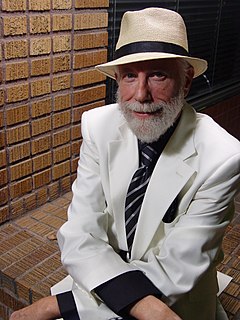A Quote by Pierre Omidyar
Technologists come at a problem from the point of view that the system is working a certain way, and if I engage in that system and actually change the rules of the system, I can make it work a different way.
Related Quotes
Capitalism does not permit an even flow of economic resources. With this system, a small privileged few are rich beyond conscience, and almost all others are doomed to be poor at some level. That's the way the system works. And since we know that the system will not change the rules, we are going to have to change the system.
There are certain concepts, which exist in English, and are unthinkable, untranslatable into Hebrew and vice versa. Hebrew has a system of tenses, which is, in a big way, different from the English system of tenses, probably different than any European system of tenses, which means a different sense of reality, which means a different concept of time. So, things can be translated, but they become different.
No citizen of this nation is worthy of the name unless he bears unswerving loyalty to the system under which he lives, the system that gives him more benefits than any other system yet devised by man. Loyalty leaves room to change the system when need be, but only under the ground rules by which we Americans live.
It's a lot to do with the Marvel ecosystem. It's different from the traditional studio system. Because it is, for how absurdly, incredibly successful they are, it is a family. It is a loving family. It is a group of people who only care about making things good. They don't choose directors who don't want to work with them in the way that they work. And the directors that they choose are better for having done it. Every director who comes out of that system are one kind when they come in, another when they come out. And they usually come back for more. They usually make more than one.
When artists connect to a system because they want to make a living, it's their own choice. In fashion, designers don't have that choice. I know everybody mentions Azzedine Alaïa, but he's been going for a long time in the system - showing to people, selling to clients - and I think it's admirable how he's transformed it into his own system in a way, but it's still a system.
When building a complex system, having crackerjack programmers (who can make any design work, even a bad one) can be a liability. The result, after lots of effort, is a working system that cannot be easily maintained or upgraded. Good -but not great- programmers would fail early, causing a realization that the system must be redesigned, and then reimplemented. The extra cost is paid once, early in the system's cycle (when it is cheap), instead of repeatedly paid late in the system's cycle (when it is more expensive).


































